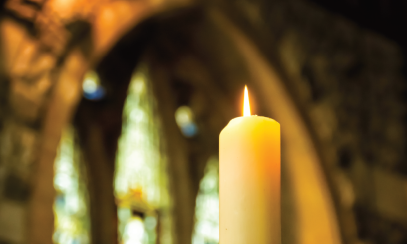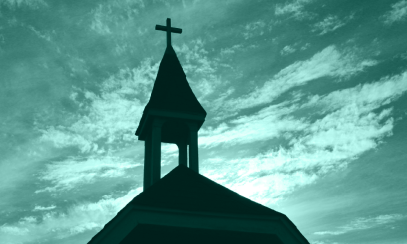Dear Fr. Joe: Is adoration idolatry?
Q. My Protestant friends tell me that the Catholic practice of adoration is idolatry – we are worshipping the host and not God. How do I respond to them?
Q. My Protestant friends tell me that the Catholic practice of adoration is idolatry – we are worshipping the host and not God. How do I respond to them?
A. You know, I hear this one a lot. Basically, it stems from some misunderstandings about the Catholic Church’s teaching on the Eucharist. Sometimes, even Catholics don’t quite know what it is we believe about the real presence of Jesus in the consecrated host. So let’s begin with that, because it is the central teaching of the Church. We believe that, during the consecration at Mass, the bread and wine change their very essence – their substance – and actually become the body and blood of Christ. Isn’t that an amazing gift Jesus gave us at the Last Supper? He didn’t just give us the command to remember him, he gave us the ability to receive him in our remembrance … he is really present to us whenever we receive Communion. It’s the ultimate in cool.
Of course, since we believe that Jesus is actually present in the Eucharist, what could be more natural than wanting to spend some quiet time alone with him? I know that if Jesus appeared before me this afternoon and said, “Hey, Joe – I’d just like to hang out with you,” I would drop all my other appointments for that one. Since that isn’t likely to happen, the closest I can come is adoration.
When we talk about adoration, we are talking about spending some time in front of the Blessed Sacrament. Although we may be referring to praying in front of the tabernacle in church, usually we mean that the consecrated host is exposed – visible to worshippers. The host is placed in a small glass disk, called a luna, and that is inserted in a gold vessel called a monstrance. The monstrance has rays coming from the center, so that it resembles the sun. Or, more accurately, the Son. Get it?
Let’s get a little historical perspective on this. First of all, the practice of reserving the consecrated host outside of Mass has been around since the earliest days of the Church. You can read about it in the writings of such early Church fathers as Tertullian and Justin Martyr. In the Middle Ages, St. Francis had a deep devotion to the Eucharist and often became ecstatic after receiving Communion. He believed that being in the presence of the consecrated elements was “seeing Christ.” And although Francis, like all of us, saw God in creation, in other people, and in the Scriptures, he recognized that Christ was present in a special way in the Eucharist.
In 1226, King Louis VII of France requested a public display of the Eucharist to give thanks for a victory in battle. So many people showed up at the chapel that the bishop got permission to have the exposition of the sacrament continue – which it did, until the French Revolution.
Eucharistic adoration has been a focal point of meditation for many saints, including Cardinal Newman and Mother Seton – both of them decided to convert after spending time in adoration of the sacrament. Pope John Paul II said in a Eucharistic Congress in 1993, “The ... surest and the most effective way of establishing peace on the face of the earth is through the great power of perpetual adoration of the Blessed Sacrament.” And Mother Teresa encouraged the sisters of her order to spend a holy hour in adoration every day – a practice that is common in many churches.
So, what do you do in adoration anyway? One approach to this meditation is to compare it to the disciples spending the night with Jesus in the Garden of Gethsemane. Jesus asked them, and by extension us, to stay awake and pray with him for a while. When we spend time in adoration, we are “staying awake with Jesus” for a time. It’s a time to sit quietly with the Lord and really allow yourself time to feel his love – so often, we are too busy with the day-to-day parts of our lives to do that.
Think about this: We know how important it is to our relationships to invest time in them – you talk to your husband or wife, spend time with the kids, hang out with friends. Isn’t our relationship with God the most important one we could ever have? I mean, this is the God who made us, who died for us, who rose from the dead and loves us eternally. So we need to spend a little quality time with him. You could invite your Protestant friend to join you, and enjoy another day in God’s presence.



